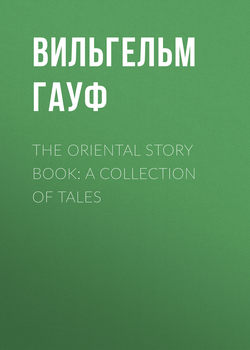Читать книгу The Oriental Story Book: A Collection of Tales - Вильгельм Гауф, Валерия Гусман - Страница 5
THE CARAVAN
CHAPTER III
ОглавлениеTHE enchanted ones wandered sorrowfully through the fields, not knowing, in their calamity, what they should first set about. To the city they could not return, for the purpose of discovering themselves, for who would have believed a stork that he was the Caliph? or, if he should find credit, would the inhabitants of Bagdad have been willing to have such a bird for their master? Thus, for several days, did they wander around, supporting themselves on the produce of the fields, which, however, on account of their long bills, they could not readily pick up. For eider-ducks and frogs they had no appetite, for they feared with such dainty morsels to ruin their stomachs. In this pitiable situation their only consolation was that they could fly, and accordingly they often winged their way to the roofs of Bagdad, to see what was going on therein.
On the first day they observed great commotion and mourning in the streets; but on the fourth after their transformation, they lighted by chance upon the royal palace, from which they saw, in the street beneath, a splendid procession. Drums and fifes sounded; on a richly-caparisoned steed was seated a man, in a scarlet mantle embroidered with gold, surrounded by gorgeously-attired attendants. Half Bagdad was running after him, crying, “Hail, Mizra! Lord of Bagdad!” All this the two storks beheld from the roof of the palace, and the Caliph Chasid exclaimed,—
“Perceivest thou now why I am enchanted, Grand-Vizier? This Mizra is the son of my deadly enemy, the mighty sorcerer Kaschnur, who, in an evil hour, vowed revenge against me. Still I do not abandon all hope. Come with me, thou faithful companion of my misery; we will go to the grave of the Prophet; perhaps in that holy spot the charm may be dissolved.” They raised themselves from the roof of the palace, and flew in the direction of Medina.
In the use of their wings, however, they experienced some difficulty, for the two storks had, as yet, but little practice. “O Sire!” groaned out the Vizier, after a couple of hours; “with your permission, I can hold out no longer; you fly so rapidly! Besides, it is already evening, and we would do well to seek a shelter for the night.”
Chasid gave ear to the request of his attendant, and thereupon saw, in the vale beneath, a ruin which appeared to promise safe lodgings; and thither, accordingly, they flew. The place where they had alighted for the night, seemed formerly to have been a castle. Gorgeous columns projected from under the rubbish, and several chambers, which were still in a state of tolerable preservation, testified to the former magnificence of the mansion. Chasid and his companion went around through the corridor, to seek for themselves a dry resting-place; suddenly the stork Mansor paused. “Lord and master,” he whispered softly, “were it not foolish for a Grand-Vizier, still more for a stork, to be alarmed at spectres, my mind is very uncomfortable; for here, close at hand, sighs and groans are very plainly perceptible.” The Caliph now in turn stood still, and quite distinctly heard a low moaning, which seemed to belong rather to a human being than a beast. Full of expectation, he essayed to proceed to the place whence the plaintive sounds issued: but the Vizier, seizing him by the wing with his beak, entreated him fervently not to plunge them in new and unknown dangers. In vain! the Caliph, to whom a valiant heart beat beneath his stork-wing, burst away with the loss of a feather, and hastened into a gloomy gallery. In a moment he reached a door, which seemed only on the latch, and out of which he heard distinct sighs, accompanied by a low moaning. He pushed the door open with his bill, but stood, chained by amazement, upon the threshold. In the ruinous apartment, which was now but dimly lighted through a grated window, he saw a huge screech-owl sitting on the floor. Big tears rolled down from her large round eyes, and with ardent voice she sent her cries forth from her crooked bill. As soon, however, as she espied the Caliph and his Vizier, who meanwhile had crept softly up behind, she raised a loud cry of joy. She neatly wiped away the tears with her brown-striped wing, and to the great astonishment of both, exclaimed, in good human Arabic,—
“Welcome to you, storks! you are to me a good omen of deliverance, for it was once prophesied to me that, through storks, a great piece of good fortune is to fall to my lot.”
When the Caliph recovered from his amazement, he bowed his long neck, brought his slender feet into an elegant position, and said: “Screech-owl, after your words, I venture to believe that I see in you a companion in misfortune. But, alas! this hope that through us thy deliverance will take place, is groundless. Thou wilt, thyself, realize our helplessness, when thou hearest our history.”
The Screech-owl entreated him to impart it to her, and the Caliph, raising himself up, related what we already know.
